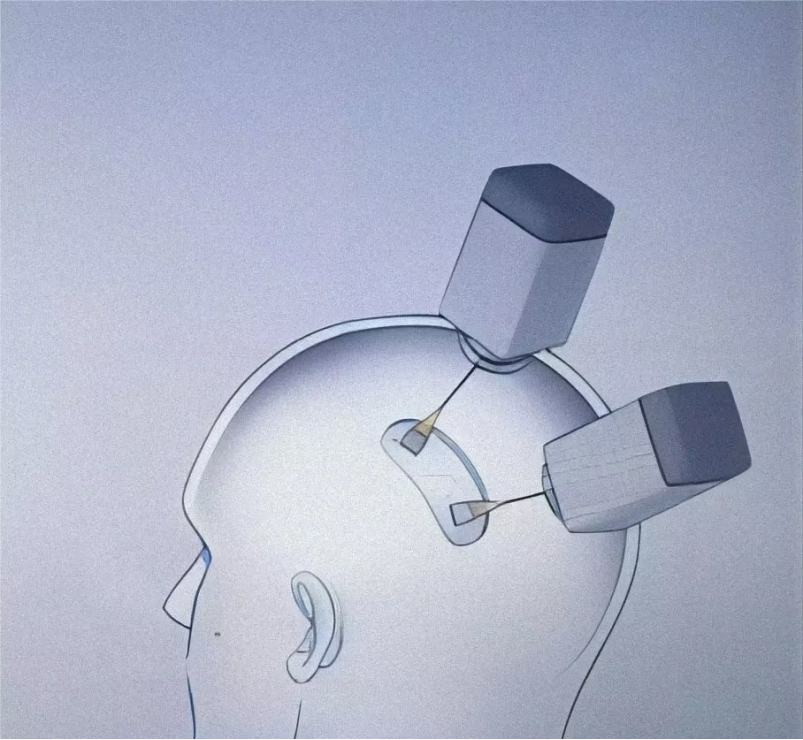
Musk's brain-computer experiments are being led by his company Neuralink, and the main goal is to develop a new kind of brain-computer interface technology. The technique involves surgically implanting tiny electrodes into the brain, allowing it to communicate directly with a computer. Last year, the US Food and Drug Administration approved Elon Musk's brain-computer interface company Neuralink to start human clinical trials. Recently, Musk announced that after the first patient to participate in the company's brain computer device implantation experiment at the beginning of the year, 100 days after the successful surgery, officially began to recruit the second patient to receive brain computer implantation. In the future, whether the wearable brain-computer interface device that enters the commercialization process can take over Tesla and SpaceX and continue Musk's business myth is to wait and see.
Specifically, brain-computer technology involves surgically implanting tiny electrodes into the brain, allowing the human brain to communicate directly with a computer. These electrodes are able to receive neural signals in the brain and then convert these signals into instructions that computers can understand, achieving direct control of external devices by the human brain. In turn, computers can send signals to the brain via these electrodes, for example to provide tactile feedback or to simulate visual input.
This brain-computer interface technology has a wide range of applications, such as helping humans to direct a computer to complete a complex chess game or control a computer mouse by thinking, without having to perform various functions. Not only can free hands, but also make the operation easier and more natural; In the field of medical applications, brain-computer interface technology can help treat neurological diseases such as Parkinson's disease, depression, and so on. By implanting electrodes, brain activity can be monitored in real time, and the activity of neurons can be analyzed, and diseases can be diagnosed and treated. It can also help paralyzed patients regain the ability to exercise, bring good news to patients, and is also a revolutionary breakthrough in medical technology; Brain-computer interface technology can also be used in the military and entertainment fields. In the military field, brain-computer interface technology can help soldiers control weapons and equipment by thinking, improving operational efficiency and safety. In the field of entertainment, brain-computer interface technology can provide a richer and more authentic experience for virtual reality games.
However, this technology also faces many challenges and controversies, one is the problem of signal decoding: decoding brain signals and translating them into computer commands or robot movements is a challenging task. The complexity, low signal-to-noise ratio and variability of brain signals make the accuracy and stability of decoding algorithms need to be further improved. In addition, the brain structure and activity patterns of different individuals are different, and it is also a difficult problem to build universal decoding algorithms and models. Second, brain-computer interface technology requires the implantation of devices into the brain, which involves issues of biological compatibility and long-term stability. Long-term use of BCI may face problems such as electrode displacement and signal attenuation, which restrict the development of BCI technology. The third point is ethical and social issues: the application of brain-computer interface technology involves a number of ethical and social issues. For example, in the application of rehabilitation for the disabled, how to protect the privacy and rights of patients is an important issue. In addition, brain-computer interface technology may also cause some new social problems, such as the blurring of the boundary between humans and machines, and the attribution of responsibility. Companies like Neuralink need to take these issues into account as they advance brain-computer interface technology to ensure the safety and feasibility of the technology.
In short, the future prospects and prospects of brain-computer interface technology are very broad, with great potential and possibilities. With the continuous progress of technology and the continuous expansion of application fields, brain-computer interface technology will bring more convenience and well-being to human beings. At the same time, we also need to pay attention to and solve the ethical and privacy issues that may arise in the process of technological development to ensure the healthy and sustainable development of technology.

With a loud bang, a nearly 30 meter high giant grain silo in Illinois, USA collapsed, and 816 tons of soybeans broke through the silo walls like a yellow torrent, instantly turning the lawn into a "golden sand dune".
With a loud bang, a nearly 30 meter high giant grain silo i…
Recently, countries such as the United States, Japan, and t…
Recently, Ukraine once again targeted the Novogorsk Petroch…
Recently, according to Reuters, European stock markets have…
In the global market recently, international oil prices and…
On October 22 local time, the US Treasury Department announ…